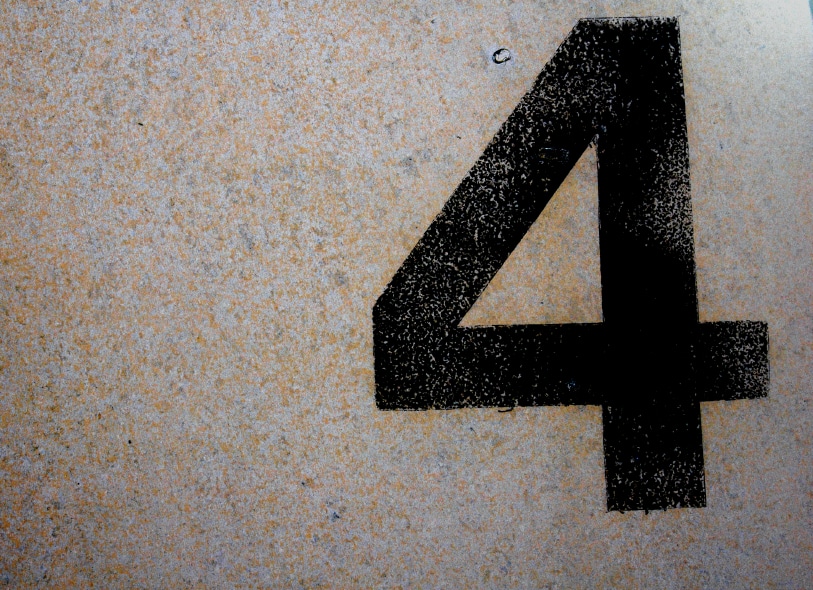The 4 Components of A Trading Process

I recently read a post by Brett Steenbarger called ‘The Four Pillars of Trading Process‘. In this article he outlines and details what is a trading process, isolating several components of any trading process. They are;
1) Preparing
2) Performing
3) Reviewing
4) Revamping
Before I get into the spice and flavor of these four points, I’d like to state this commentary on Mr. Steenbarger’s post is both praise and critique. I appreciate his work on trading psychology and would suggest checking out his blog.
In this post, I found useful components to his description of the trading process. However, there are a few ingredients I would amplify/expand on, meaning I felt they could have been cooked a little more.
Let’s get into the four components and how he describes them. I will go over one at a time, discussing what I found valuable, along with what I’d change/adjust/or add to.
I will also give suggestions how you could get a greater understanding of the trading process and how to leverage this to increase your trading skill set.
#1 Preparing
Mr. Steenbarger defines this as the following;
“Preparing – What you do to identify and exploit opportunity in markets, including observation, research, idea testing, trade structuring, portfolio construction, and trade planning.”
To me, this first one falls short, because it only covers what you do once you sit down in front of your trading station.
Preparation (in my book) begins with the mental game, and that has to start before you actually put your butt in your chair.
You’ll see this in professional athletes who are getting themselves mentally ready before they even get to the stadium.
Aaron Rogers (quarterback for the Green Bay Packers, 1x Super Bowl Champion & holder of several Quarterback records) actually spends time the night before thinking about the game and what he is going to do.
Trading has to be approached in a similar way, and the successful traders I communicate with regularly employ the same tack.
Hence, we have to include mental preparation in this part of the trading process.
Even though Brett (Mr. Steenbarger’s first name) does a good job outlining what you do when you are in front of your trading station, I think this definition of ‘preparation‘ needs to be amplified.
#2 Performing
Here Mr. S. defines this as follows;
“Performing – What you do to initiate and manage positions in the market, including sizing, risk management, entry and exit execution, and adjusting to the ongoing stream of news, data releases, and market movements.”
Here I think Brett covers (by and large) all the ‘mechanical’ actions you as a trader will execute and engage on a daily basis. I do feel there is room in here to discuss ‘mental management‘ which is a large component of ‘performing‘ during your trading day.
However, I will cover this in the near future.
#3 Reviewing
Mr. S. here writes;
“Reviewing – What you do to examine individual trades and overall trading to learn from successes and mistakes and to reexamine ideas about markets.”
Not much to say here – he pretty much nails it, other than reviewing one’s mental performance & trading journal.

Note: For a great article on how to review your trades, read Reviewing Trades: Two Crucial Tips)
#4 Revamping
Brett here states;
“Revamping – What you do to translate your reviews into concrete goals and actions that make you more prepared and aid your future performance.”
Here I also feel he gets it right, although I think we can bring this into #3 above and make them one whole component of the trading process.
Now he also states in this article how the main issue for traders is not letting their emotions affect their trading and discipline. He feels the big issue is how they neglect the last two elements and spend most of their time working on #’s 1 and 2. Does this ring a bell?
While I certainly agree traders are less likely to review their trades, performance, process, etc., I find most revamping their methods all too frequently without ever digging deep into any one process, system or skill set.
On top of this, I find without a doubt many traders let their emotions affect their trading and discipline. I hear about it all the time, and even see it in their trading journals.
My experience is both are a major issues. Any trader not controlling their thought processes or emotions is the least likely to succeed. Hence I see it as a both-and scenario, not an either-or.
In Summary
I think Mr. Steenbarger does a good job of breaking down specific components of the trading process, and giving them a more detailed look.
I personally feel there needs to be more emphasis on preparation & reviewing, along with managing one’s mindset and emotions in real time.
I do see other components besides these four, which I will cover in the near future, but overall, he does a good job of bringing a greater discussion on the subject.
Those traders without a well developed trading process beyond the vanilla a) take a trading course, b) learn a trading system, and c) start trading in the markets, will find themselves struggling to trade consistently, missing key components, and not building their skill set.
Unfortunately this is the path most traders take, and it simply won’t get you from here to consistent profits. Hence why this is an important article and discussion.
With that being said, what parts do you see as critical to the trading process? Do you agree with my sentiments here?
Please make sure to share your thoughts, comments and feedback, particularly why and what you see the same/or differently.



Hi Chris,
Thanks again for another great article.
It’s true that most people (included myself in the beginning) are more attracted by the systems and less about the mental aspects in trading.
This is what I really appreciate about your website and courses. It’s not only the system or strategies, but the whole process from a to z including risk management, mental aspects, discipline, trading journals,etc. New traders like me are directly pointed in the right direction.
Studying the mental aspect takes time but I think it’s a very good investment. I recently start to read some books about meditation and how to create a more open mind before trading. While reading, it becomes so ‘projectable’ on trading. A new world begins to open now. I hope that I can adapt this aspects soon in my trading.
Kris
Hello Kris,
Yes, its easy to be more attracted to the systems then the mental side of things. This is common, and we have to avoid being ‘common’ when it comes to trading, because the ‘common’ perspective is the one that most often loses money.
And yes, studying the mental aspect takes time, sometimes more, but its the best investment I’ve ever made.
Sounds like you are heading in the right direction, so keep up the good work.
Kind Regards,
Chris Capre
Great article. Thanks Chris!
Hello Yuen,
Good to hear.
Kind Regards,
Chris Capre
Well I have to admit mental aspects are important, but i still find it hard to build a confidence in myself, because I purely find it hard to review my own trading. As If i know what to do before getting in, I will not make the same mistake. My major problem is after I have a trade done, I simple can not learn my failed trades as I dont know how to improve. It is just like writing an english essay, I can write 100 essays but is there are no teacher to mark it, how can i improve by marking myself? So the part “3”, reviewing the trades always puzzle me. If you could share how you review your unsuccessful trades, how do improve. May be I could be self marked in my own essay?
Hello Kate,
Are you saying the only reason you don’t have confidence in your trading, is all due to not being able to review your trades properly? I’ve never seen someone feel like they don’t have confidence in themselves because they cannot review their trades correctly.
In terms of reviewing your trades – start simple. Meaning – review the trades according to following your trading plan. So for each trade, ask yourself ‘Does this trade follow my trading plan?’ If the answer is yes, then you’ve gotten the first part about reviewing trades. And since you (I’m hoping) have a trading plan in place, with clear rules for taking trades, then you should be able to do this part easily.
Now if you don’t have a trading plan, then you need to start there before reviewing trades. You have to have a clear trading plan in place for how to select trades, prepare for your trading day, manage risk, etc.
Once you have this in place, then you can easily get the first part of trade reviews. The next part in looking at ‘failed trades’, which if you read my article Working With Failed Trades, then you realize there is no such thing as a ‘failed trade’, but only a trade you failed to learn from.
If you are reviewing one of those trades, first ask if you traded according to your plan. If so, then you got that part right. If you didn’t trade according to your plan, then you should (based on your trading plan) be able to isolate what parts you did incorrectly based on your trading plan. So this is not as hard as it seems to review losing trades.
Does this make sense?
Kind Regards,
Chris Capre